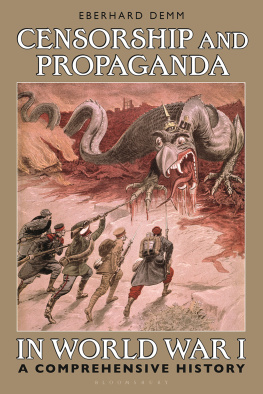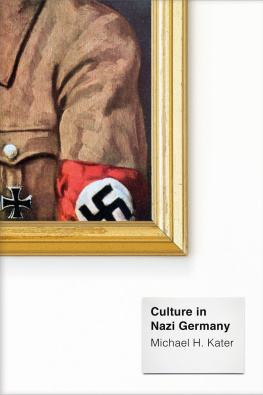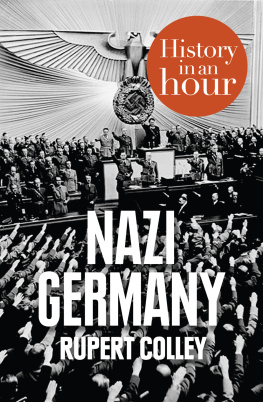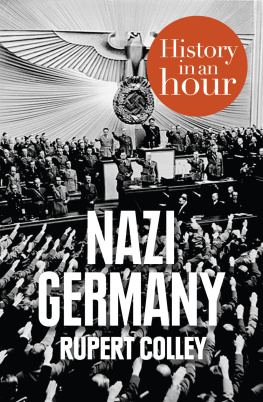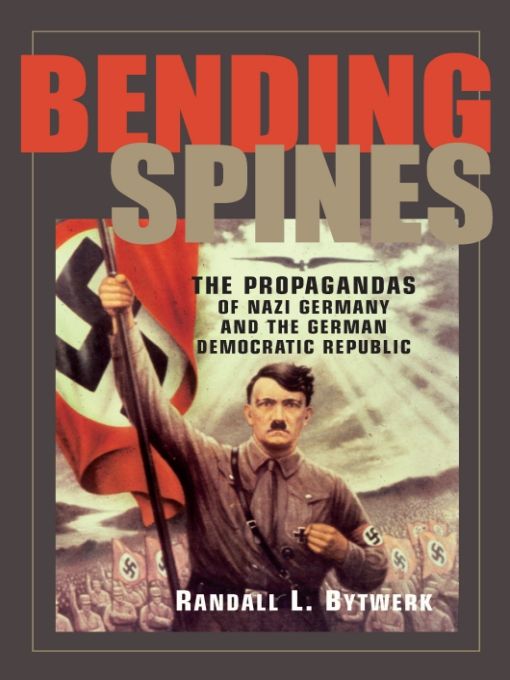
Table of Contents
Martin J. Medhurst, Series Editor, Baylor University
Rhetoric and Public Affairs Series
Eisenhowers War of Words: Rhetoric and Leadership
Martin J. Medhurst, Editor
The Nuclear Freeze Campaign: Rhetoric and Foreign Policy in the Telepolitical Age
J. Michael Hogan
Mansfield and Vietnam: A Study in Rhetorical Adaptation
Gregory A. Olson
Truman and the Hiroshima Cult
Robert P. Newman
Post-Realism: The Rhetorical Turn in International Relations
F. A. Beer and R. Hariman, Editors
Rhetoric and Political Culture in 19th-Century America
Thomas W. Benson, Editor
Frederick Douglass: Freedoms Voice, 1818-1845
Gregory P. Lampe
Angelina Grimk: Rhetoric, Identity, and the Radical Imagination
Stephen Howard Browne
Strategic Deception: Rhetoric, Science, and Politics in Missile Defense Advocacy
Gordon R. Mitchell
Rostow, Kennedy, and the Rhetoric of Foreign Aid
Kimber Charles Pearce
Visions of Poverty: Welfare Policy and Political Imagination
Robert Asen
General Eisenhower: Ideology and Discourse
Ira Chernus
The Reconstruction Desegregation Debate:
The Politics of Equality and the Rhetoric of Place, 1870-1875
Kirt H. Wilson
Shared Land/Conflicting Identity : Trajectories of Israeli and Palestinian Symbol Use
Robert C. Rowland and David A. Frank
Darwinism, Design, and Public Education
John Angus Campbell and Stephen C. Meyer, editors
Religious Expression and the American Constitution
Franklyn S. Haiman
Christianity and the Mass Media in America: Toward a Democratic Accommodation
Quentin J. Schultze
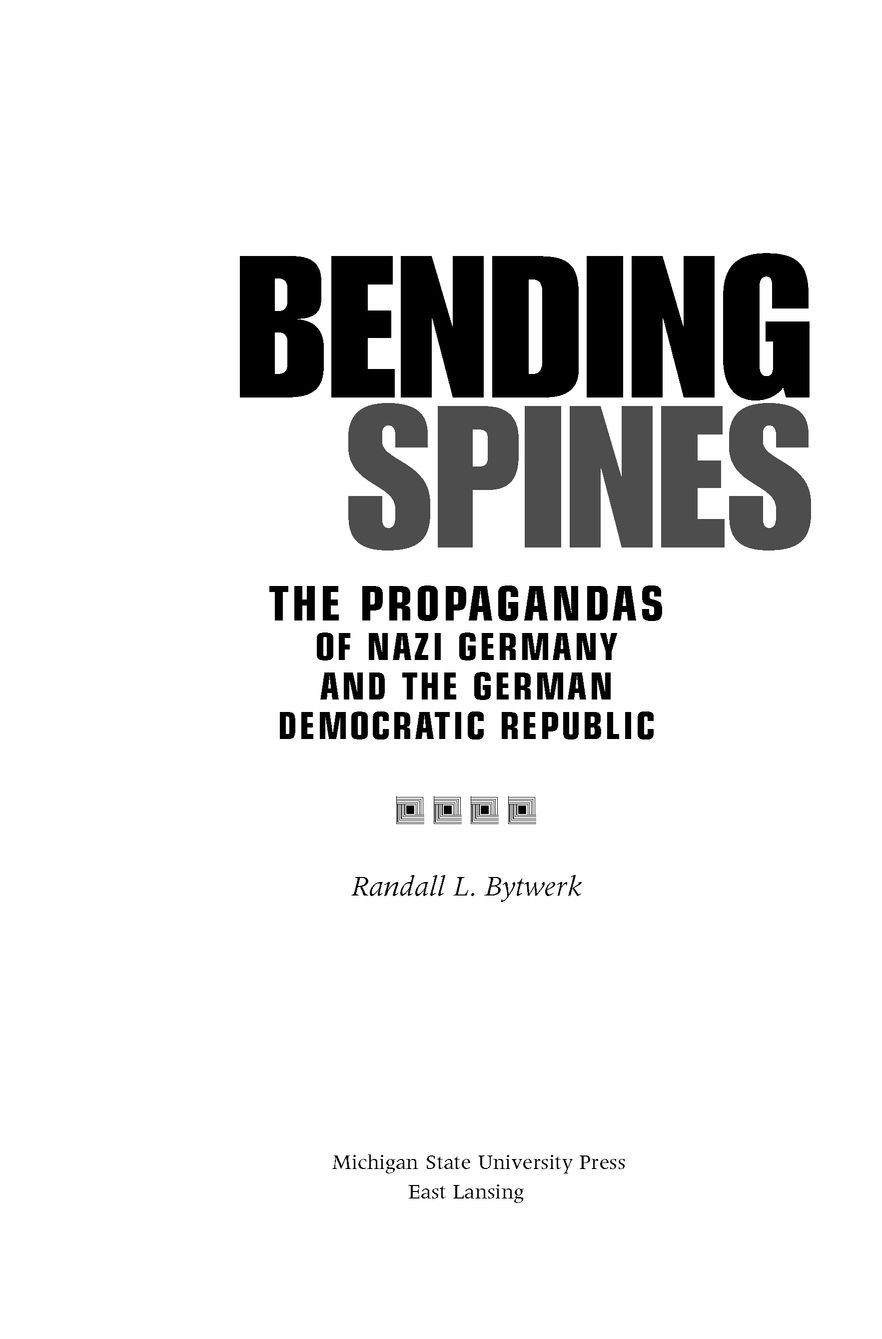
For Robert L. Bytwerk,
who gave me a good start and who has been a steady help along the way
Acknowledgments
The research was supported by Calvin College, which provided a sabbatical, other time for travel and research, and an environment conducive to writing because one has something to say rather than because one has to.
The archivists and librarians at the Stiftung Archiv der Parteien und Massenorganisationen der DDR im Bundesarchiv in Berlin oversee a pleasant working environment, and they know their holdings.
Colleagues have taken the time to read drafts of the manuscript and give responses that sharpened my thinking and rescued me from error. Robert D. Brooks, who first prompted my interest in the topic thirty years ago (and it did take some prompting), gave me most helpful counsel. John Rodden did, too. My Calvin colleagues David Diephouse, Barbara Carvill, and Wally Bratt offered good advice. My departmental colleague Quentin J. Schultze gave the penultimate draft a thorough reading that reminded me of what a prince among colleagues he is. The three people who reviewed the manuscript for Michigan State University Press made a variety of suggestions, many of which I took with thanks.
My friends who were once citizens of the German Democratic Republic have stimulated my thinking in many ways. I particularly thank Pastor Wolfgang and Cornelia Grger, the Kalinkat family, Gnter Gieler, and Christa Fischer. They offered friendship and hospitality both before and after 1989.
Sharon and David Bytwerk took the annoyances of a husband and father writing a book in good cheer.
I thank the publishers of the following essays for permission to incorporate parts of them into this book.
Und Ihr habt doch gesiegt: Rhetorical Aspects of a Nazi Holiday originally appeared in ETC: A Review of General Semantics 36 (1979): 134-146, published by the International Society for General Semantics, Concord, California.
The Dolt Laughs: Satirical Publications under Hitler and Honecker originally appeared in Journalism Quarterly 69 (1992): 1029-1038.
The Failure of the Propaganda of the German Democratic Republic originally appeared in Quarterly Journal of Speech 85 (1999): 400-416.
The Propagandas of Nazi Germany and the German Democratic Republic originally appeared in Communication Studies 49 (1998): 158-171.
The Pleasures of Unanimity in the GDR originally appeared in After the GDR: New Perspectives on the Old GDR and the Young Lnder. (Amsterdam: Rodopi, 2001) 109-124.
Terms and Abbreviations
ADN: The GDR news agency
Bezirk: One of fourteen GDR districts
DAF: German Labor Front
DEFA: GDR film production company
DSF: Society for German-Soviet Friendship
FDGB: Free German Trade Union
FDJ: Free German Youth
Gau: A Nazi party region
GDR: German Democratic Republic
GPA: German Propaganda Archive
Kreis: Roughly the equivalent of an American county
NSDAP: National Socialist German Workers Party
OKW: Supreme Command of the Wehrmacht
RKK: Reich Chamber of Culture
RMVP: Reich Ministry for Peoples Enlightenment and Propaganda
RPL: Reich Central Propaganda Office
SA: Brown Shirts, or Storm Troopers
SAPMO: The repository of East German party and mass organization records, part of the German Federal Archives
SD: Security Service of the SS
SED: Socialist Unity Party of Germany
SS: Black Shirts, the elite Nazi paramilitary organization
ZK: Central Committee of the SED
Introduction
A pastor who lived through the Third Reich described his meetings with Nazi officials in a way that illuminates life in totalitarian societies: [O]ne would be pushed further, step by step, until he had crossed over the line, without noticing that his spine was being bent millimeter by millimeter. The Nazis he met with knew that persuasion is a gradual process with many methods.
Just after Nikita Khrushchevs famous speech that revealed some of Stalins depravity, Johannes R. Becher, author of the GDRs national anthem and minister of culture, wrote a poem that remained unpublished until 2000. It was titled Burnt Child:
He who has had his spine broken
Is hardly to be persuaded
To stand up straight.
The memory of the broken spine
Terrifies him.
Even when the break
Has long since healed,
And there is no longer any danger
Of breaking his spine.
The poem may be a confession. In any event, it was published only long after Bechers death.
National Socialism and Marxism-Leninism put enormous effort into bending, and sometimes breaking, spinesa process for which both found propaganda necessary. The two German systems differ in many ways. One is the mark of vivid evil, the other leaves images of gray old men in colorless cities. The Nazi villain is a regular in film and fiction. Leni Riefenstahls Triumph of the Will (1935) is the quintessential propaganda film. The GDR left nothing that makes evil as striking. GDR writer Volker Braun once called it the most boring country on earth.
The differences between the systems should not be ignored but neither should the similarities. Both used propaganda to attempt to build new societies in which people were to share almost unanimously a common worldview of religious proportions, what some today call a hegemonic metanarrative, with little room for opposing versions of truth. Both greatly reduced opportunities for open discourse, rendering it difficult and perhaps even impossible for them and their citizens to correct the evils their governments caused. The extent to which the propagandas of two systems close in time and rooted in the same history and culture, yet widely varying in ideology, are similar or different will say something about the larger nature of propaganda in the modern world.
Next page




